How often should you water a vegetable garden? A former professional grower advises how to get the schedule right
It varies seasonally and can range from not at all to twice a day, so here’s how to help make that judgement
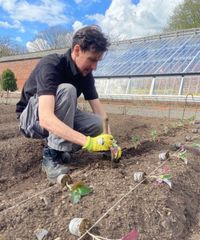
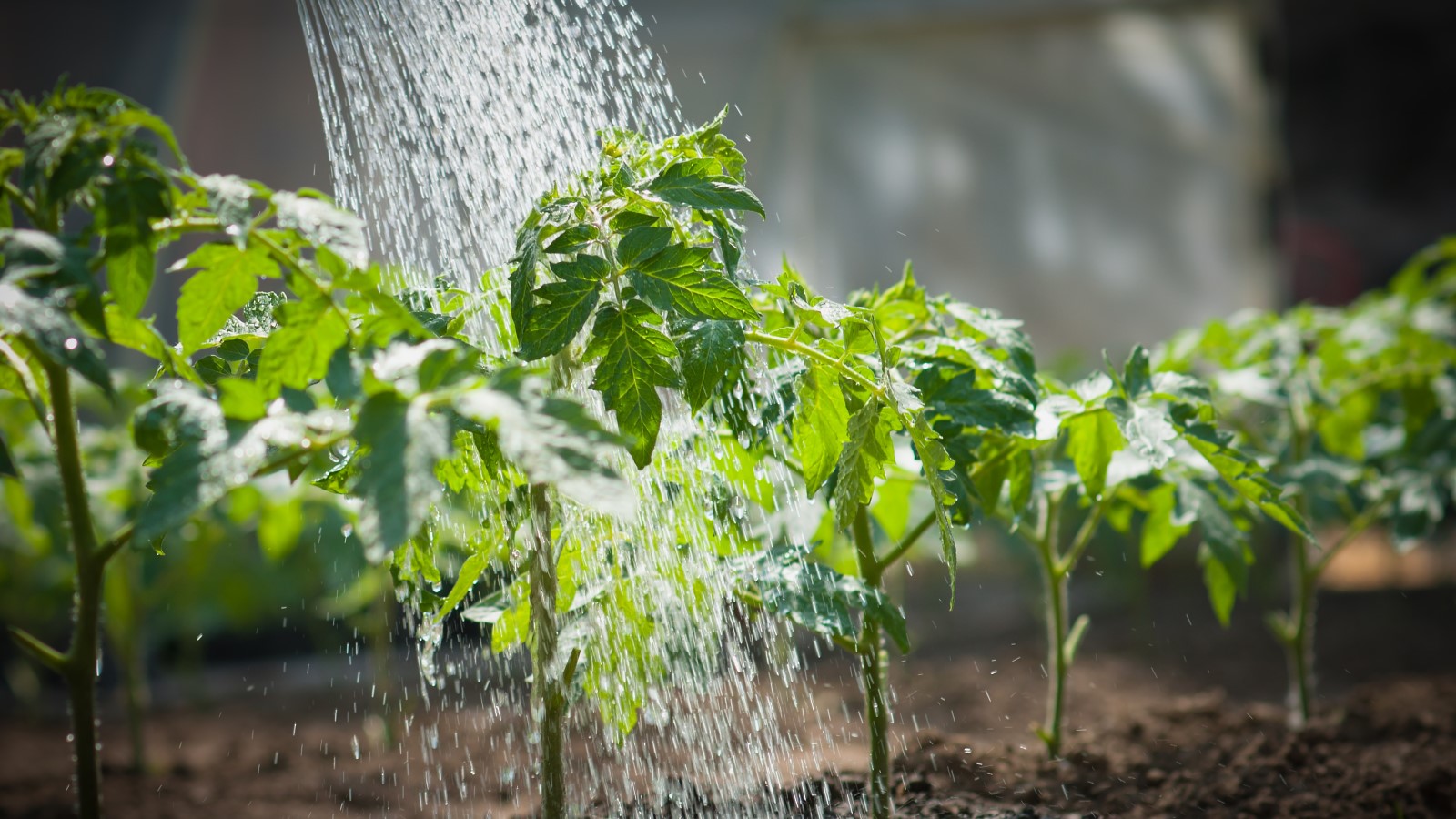
Growing your own vegetables is a highly enjoyable and rewarding experience, though it does not come without effort. Watering is an unavoidable part of growing crops and many novice growers can find themselves wondering how often they need to water their plants.
Judging when to water plants, especially vegetables as many crops are very hungry plants, can be tricky. The regularity of watering is admittedly highly variable and can range from not at all, to every few weeks, to every day, but there are methods of helping you judge how often is often enough. By keeping track of the weather, working the soil to hold more moisture, watering deeply, and regularly checking the moisture levels in the ground, you can make a more informed decision on how often you should water a vegetable garden.
I worked in several large vegetable gardens during my time as a professional gardener and watering could potentially take up many hours a day, especially during the summer. You had to be organized, know the crops you were working with, and make judgement calls about what needed to be watered when. I was not always lucky enough to have irrigation systems and lots of the watering had to be done by hand, so that was where good monitoring and planning was essential.
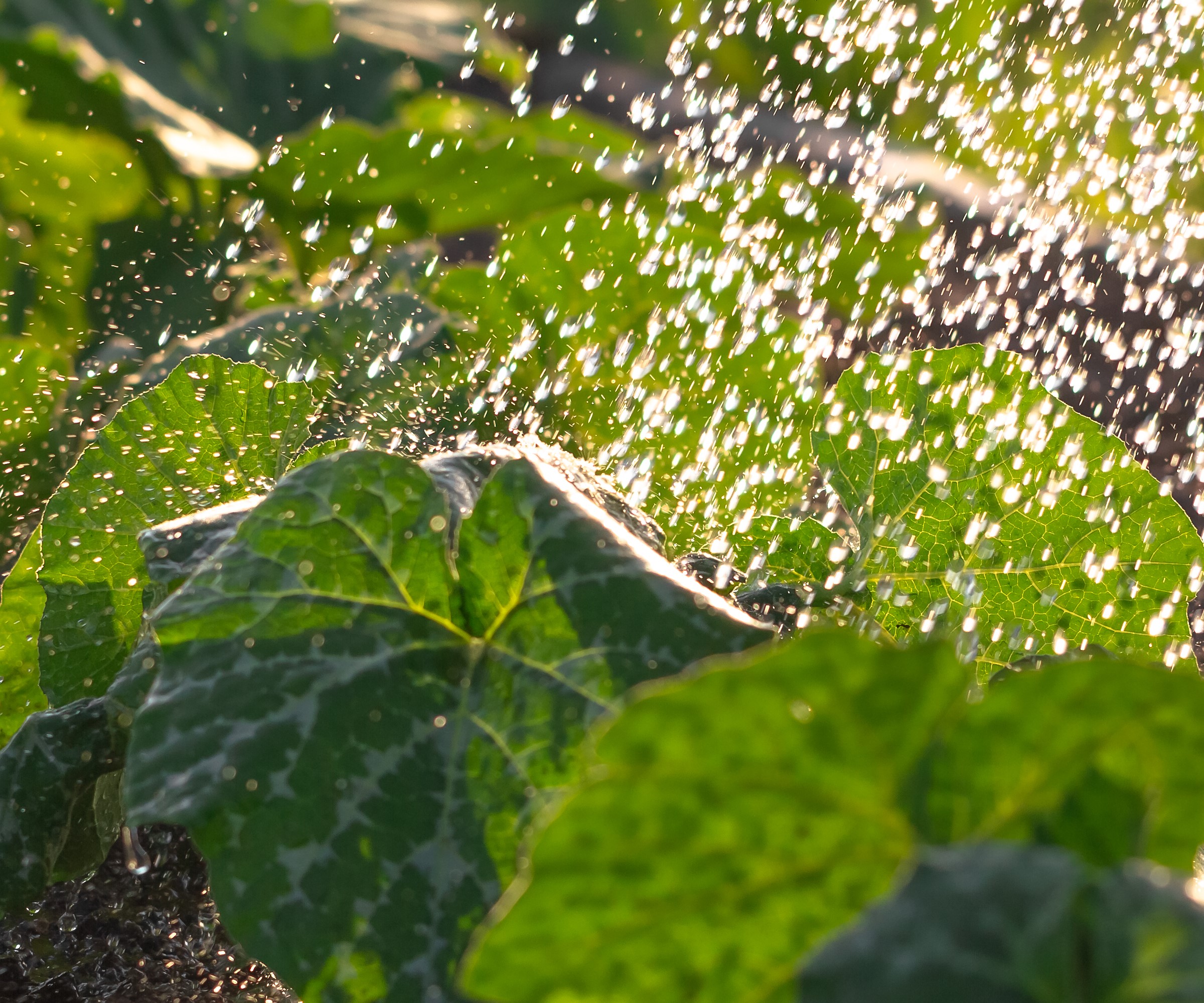
Squash plants need a lot of water while they are developing fruit
How often do you water a vegetable garden?
The exact timing for how often you should water a vegetable garden will mainly be dependent on weather conditions, but also to some degree by the soil type. The temperature and level of natural rainfall will be the main outside factors that dictate how often a vegetable garden needs watering.
The type of soil is a factor as a sandier soil will drain quicker than other soil types and require more regular watering. This can be combated by adding organic matter or compost, either incorporating it into the soil or on top as a mulch, which will improve the ability of the soil to hold onto moisture and make it available to roots for longer.
It tends to be thought that most vegetables require an inch or two of water each week. During wetter periods it means you will not have to water at all, while on the sunniest days of midsummer you may need to be out there every day or two watering plants in hot weather. It is important to track the weather and keep an eye on the forecasts to help guide your watering decisions. You could also get a rain gauge, such as this outdoor rain gauge on Amazon, as well as try to collect as much natural water as possible through rainwater harvesting.
The way you water will also dictate how often you have to water a vegetable garden. Correct watering can mean less regular watering, as vegetable plants will benefit more from deep and less frequent watering. A common garden watering mistake is to water lightly and only tickle the surface, that does the plants no good and also means you have to water more often. Giving the plants a good drink will drastically reduce how often you have to water, and you can further help retain more moisture in the soil by mulching the vegetable garden to reduce evaporation.
Design expertise in your inbox – from inspiring decorating ideas and beautiful celebrity homes to practical gardening advice and shopping round-ups.
Knowing your vegetables is imperative to get the regularity of watering correct. There are some drought-tolerant vegetables that you can grow, but there are also lots of thirsty vegetables that want a lot of water. The likes of beans, beetroot, tomatoes and squashes need lots of water and lots of vegetables will need extra water when they are flowering or developing fruit. In particular, crops such as squash, pumpkins, zucchini and tomatoes want lots of water when the fruits are swelling and legumes such as peas and beans will develop better pods with regular watering.
Checking the moisture levels should be done regularly to see how much water is in the soil deeper than the eyes can see. You can do this with your fingers or a moisture meter, such as this long probe soil moisture meter available on Amazon, and this will help you make a more informed decision about whether to water. This can help prevent issues stemming from overwatering.
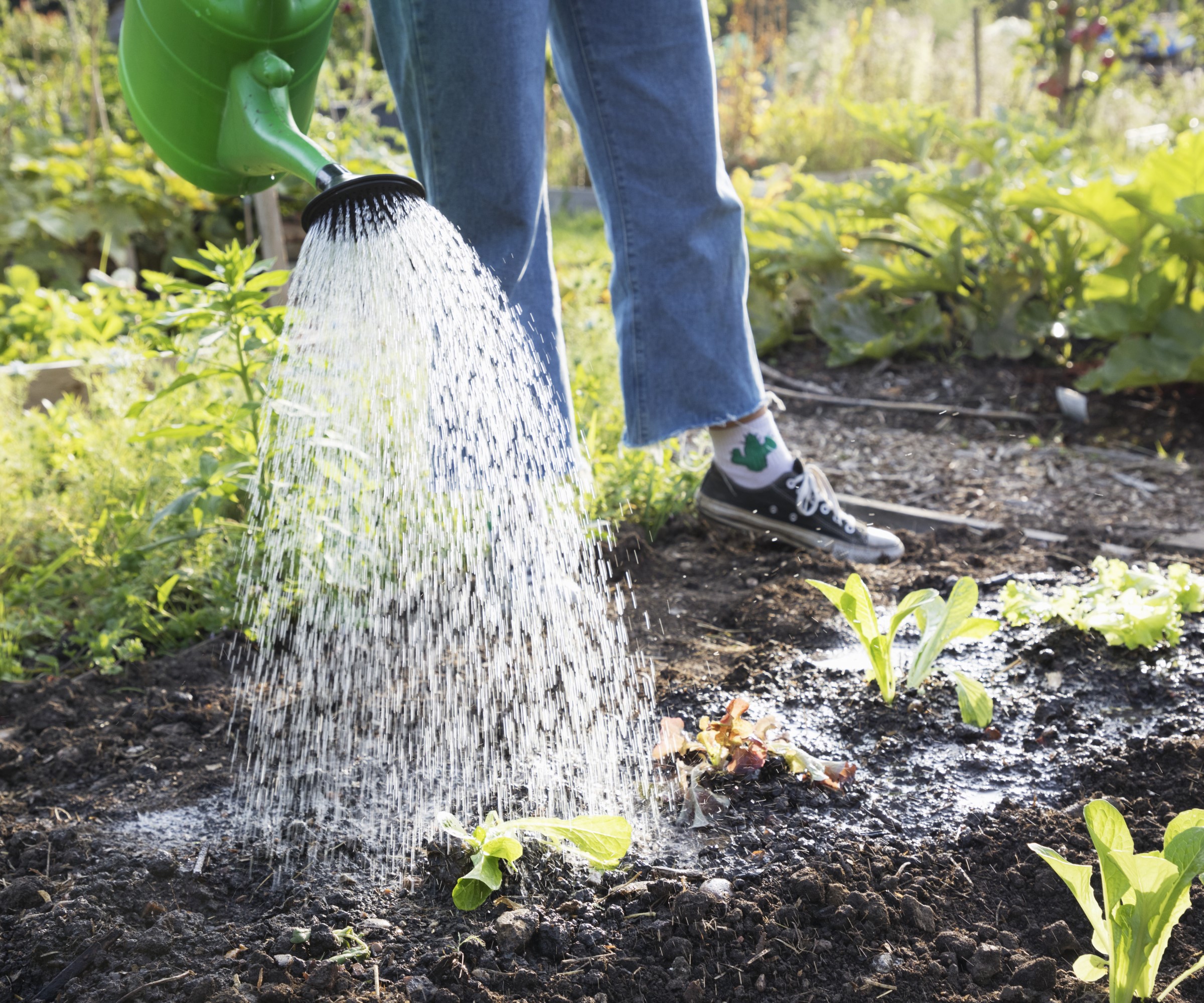
Timing is key to ensuring as much water as possible stays in the soil
How often should you water a raised vegetable garden?
If you are growing in raised garden beds that can have an impact on the regularity of watering. Raised beds offer many advantages to gardeners and can be a great option for small vegetable garden ideas, however, they do need watering more often, especially during the warmer months. It is down to the fact that the elevated soil is liable to dry out quicker than soil in the ground, meaning you have to water more often. Water applied to a raised vegetable garden can run through the soil quicker than in the ground and leech away from the rootzone. It can leave plants more susceptible at times of drought. Adding compost or organic matter to the soil can help with water retention and mulching can help reduce evaporation.
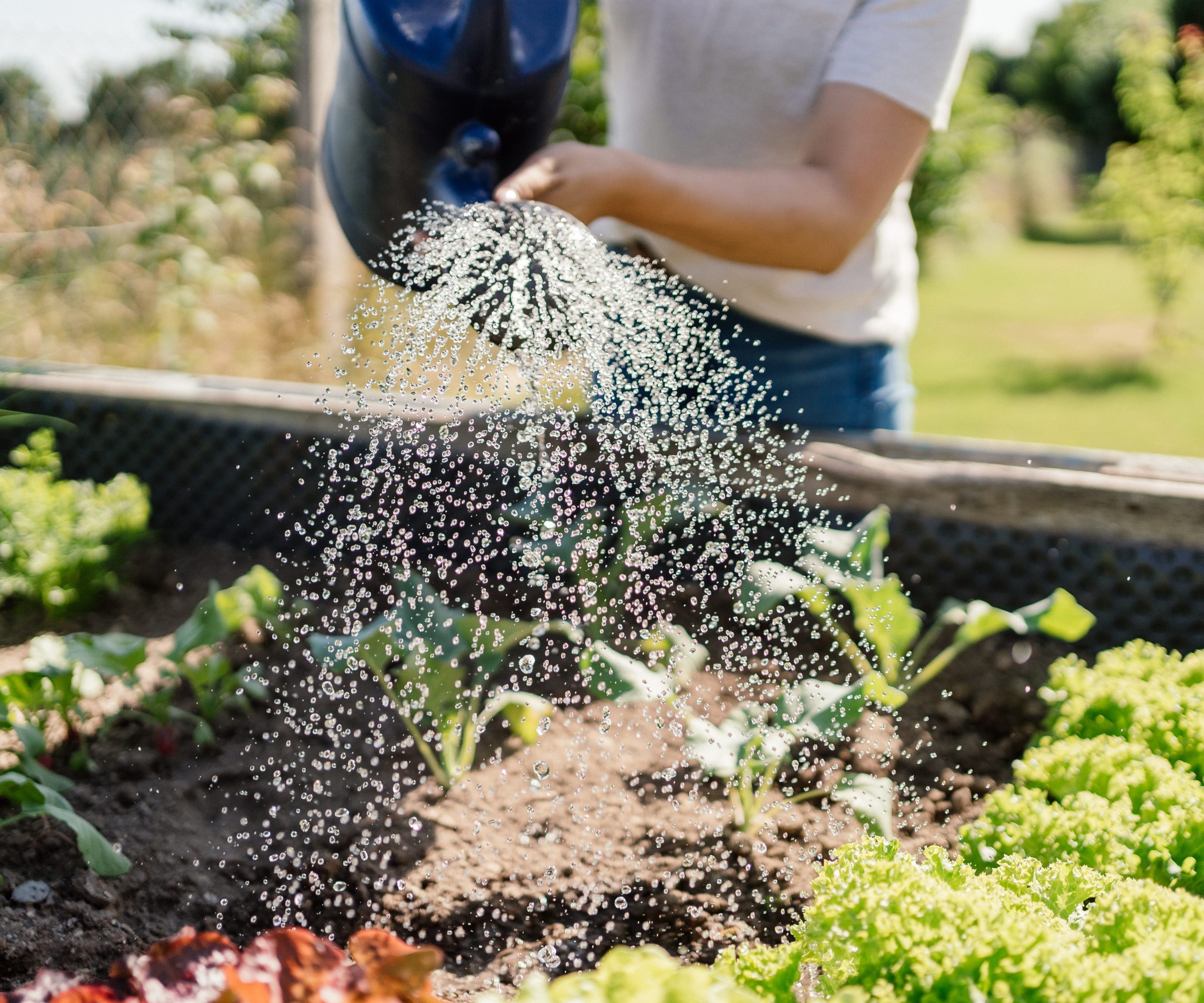
Raised beds will dry out quicker than the ground
How often should you water a vegetable container garden?
There are a great number of crops that work as vegetable garden container ideas, but any pots will need more checking and watering. Any of the best vegetables to grow in pots will need lots of moisture and the soil in pots can dry out very quickly, especially on hot days.
While a twice-weekly check may suffice for a lot of the year, and a water every three or four days, this will ramp up during the summer. On very hot days you should check pots at least once or twice a day to see how dry the soil is, and water as required.
When watering plants in containers, check the moisture level a few inches down and always water deeply. This is usually until you see water running out of the drainage holes in the bottom of the pot.
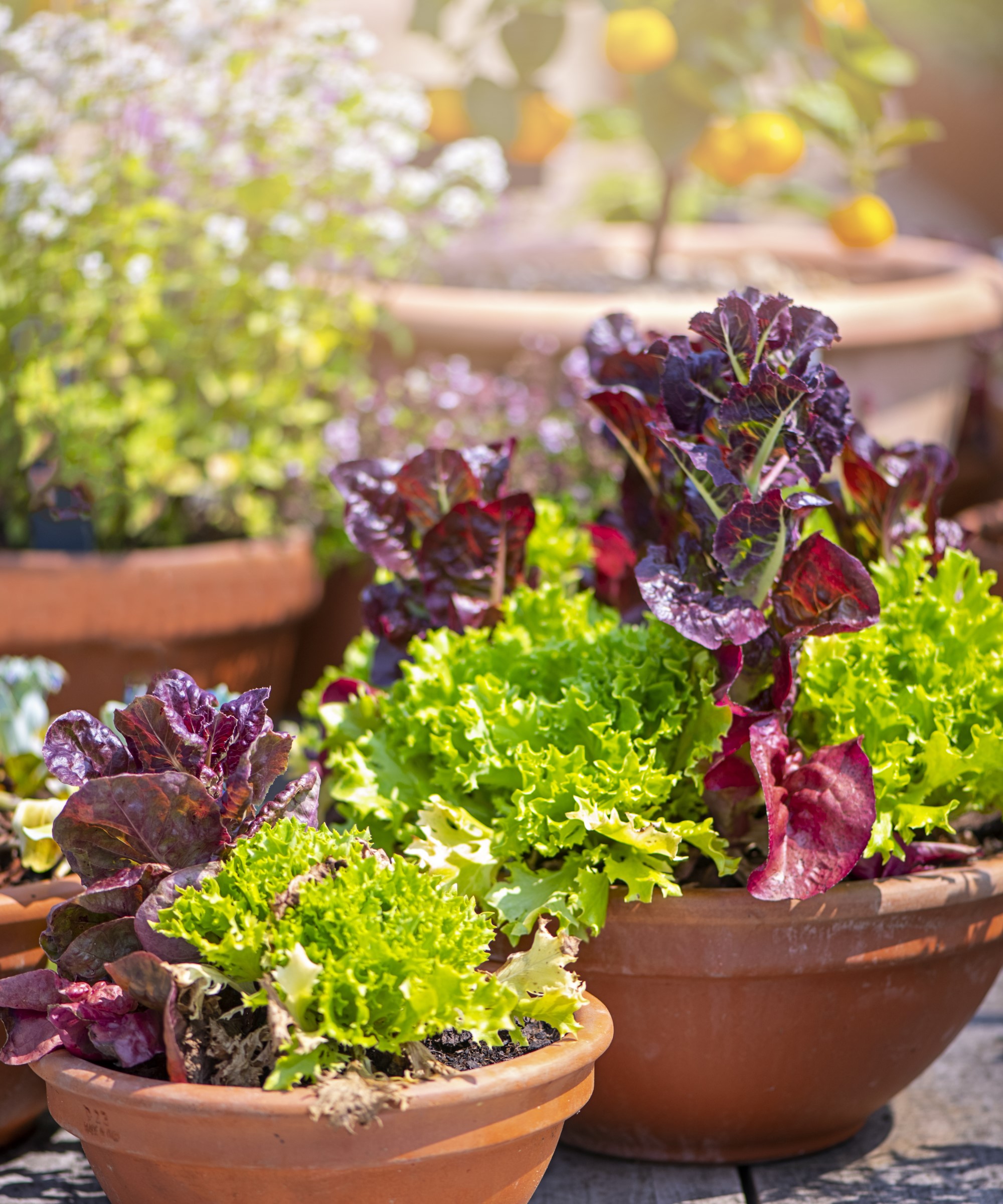
Crops in containers need to be checked daily in hot spells
How often should you water a newly planted vegetable garden?
Newly planted vegetables and vegetable seedlings need watering more often than fully grown plants. As they do not have a fully developed root system they cannot find moisture deeper down and their roots can quickly dry out if the surface gets baked.
Any young vegetable plants that have been recently planted, or transplanted seedlings, need to be checked on a daily basis and well-watered as required. During the hottest months, this could potentially be once, or even twice, a day to ensure these newly-planted vegetables survive.
FAQs
Should I water my vegetable garden every day?
It all depends on the weather, the site, and the plants. This trio all combine to dictate whether you need to water every day. On hot days you will definitely need to water newly planted vegetables or seedlings every day to keep them alive, while it is possible that many crops could do with a daily watering.
During summer, or particularly sunny days, it is advisable to check the soil moisture on a daily basis to see if the ground is dry and needs watering.
There are vegetable garden hacks that can help to water crops and cut down on daily watering, such as a garden olla that can be buried in the ground to slowly leech water through its porous terracotta surface to slowly hydrate plants around it.
If you are thinking of starting a vegetable garden, it is always better to start small. Going big from the start is a common vegetable gardening mistake and it can make maintenance, such as watering, feel daunting from the off. Make sure you take into consideration the time involved looking after the plot on a daily basis.
Starting small allows you to get that enjoyment, build confidence, and pick up skills, such as mastering proper watering as you learn and tend your plot.

Drew has worked as a writer since 2008 and was also a professional gardener for many years. As a trained horticulturist, he worked in prestigious historic gardens, including Hanbury Hall and the world-famous Hidcote Manor Garden. He also spent time as a specialist kitchen gardener at Soho Farmhouse and Netherby Hall, where he grew vegetables, fruit, herbs, and cut flowers for restaurants. Drew has written for numerous print and online publications and is an allotment holder and garden blogger. He is shortlisted for the Digital Gardening Writer of the Year at the 2025 Garden Media Guild Awards.